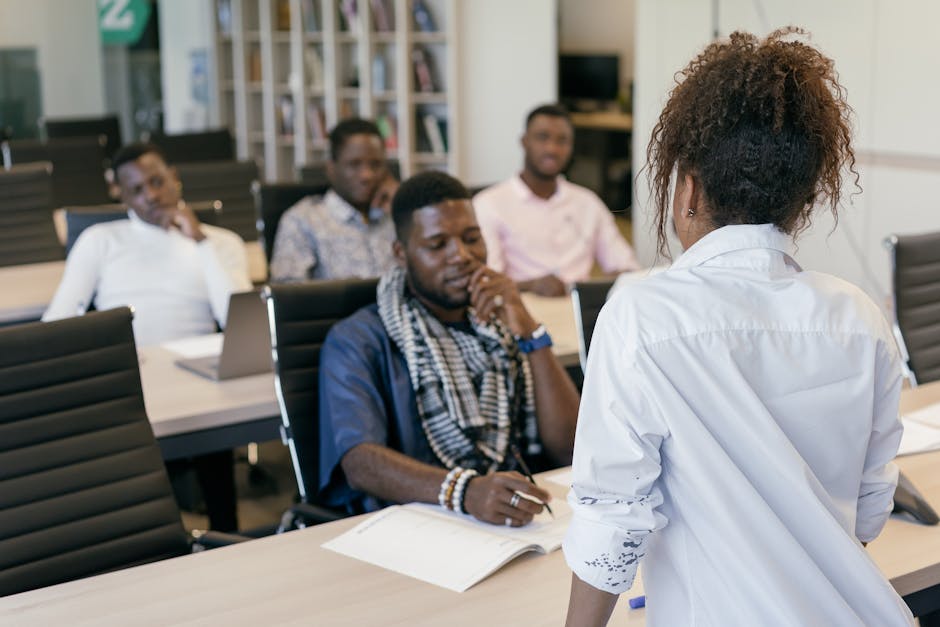Qatar Hotel Workforce Training
Understanding Qatar Hotel Workforce Training
Effective hotel staff development in Qatar requires understanding its unique context. The nation’s labor market is diverse and multinational. Therefore, training must be culturally sensitive and often multilingual. Moreover, Qatar’s National Vision 2030 emphasizes human development. This national framework directly influences vocational education priorities. Additionally, the hospitality industry must align with international service standards. This alignment ensures Qatar remains a premier global destination. Consequently, comprehensive training programs are not just beneficial but essential. They bridge the gap between foundational skills and world-class service delivery.
Qatar Hotel Workforce Training Benefits
Investing in sophisticated hospitality employee development yields immense returns. Firstly, it drastically improves guest satisfaction scores and online reviews. Happy guests become loyal brand advocates. Secondly, it significantly reduces employee turnover rates. Well-trained staff feel more valued and engaged in their roles. Moreover, it enhances operational efficiency and reduces costly errors. This leads to improved profitability for the hotel. Additionally, a strong training culture boosts the property’s reputation. It becomes an employer of choice within the competitive market. Finally, it future-proofs the organization against industry disruptions. Therefore, the return on investment in learning initiatives is substantial.
How Qatar Hotel Workforce Training Works
Modern hospitality education utilizes a blended and dynamic approach. It moves far beyond simple classroom lectures and printed manuals. Instead, it incorporates immersive digital learning platforms. These platforms offer micro-learning modules accessible on mobile devices. Furthermore, Virtual Reality (VR) simulations are becoming standard. They allow staff to practice complex scenarios in a risk-free environment. For example, a concierge can simulate handling a difficult guest complaint. Moreover, Artificial Intelligence (AI) provides personalized learning paths. The AI analyzes individual performance to recommend specific training modules. This creates a highly tailored and effective upskilling process for each employee.
Best Qatar Hotel Workforce Training Practices
Adopting industry best practices is crucial for program success. First, leadership must champion and actively participate in the learning culture. Their involvement signals the program’s importance to all staff. Next, training must be directly tied to specific career advancement pathways. This gives employees a clear incentive to engage and excel. Additionally, content should be localized and relevant to the Qatari market. It should respect cultural norms while teaching international service etiquette. Moreover, programs must include robust measurement and analytics. Key Performance Indicators (KPIs) should track progress and impact on business metrics. Finally, fostering a continuous feedback loop ensures the curriculum remains relevant.
Qatar Hotel Workforce Training Implementation
Successful implementation requires a meticulous and phased strategy. Begin by conducting a thorough skills gap analysis across all departments. This analysis identifies the most critical areas for development. Next, select technology partners that offer scalable and secure solutions. Ensure their platforms are user-friendly for a diverse workforce. Then, develop a pilot program for a single department. Use this pilot to gather data and refine the approach before a full rollout. Furthermore, secure buy-in from middle managers. They are essential for encouraging their teams to participate fully. Additionally, allocate a dedicated budget for ongoing content updates and tech support. For further guidance, explore our professional resources.
Advanced Qatar Hotel Workforce Training Strategies
The future points towards hyper-personalized and predictive learning systems. Advanced AI will not only recommend courses but also predict skill gaps before they occur. This allows for proactive training interventions. Furthermore, gamification will become more sophisticated. Employees will earn badges and rewards for mastering new competencies. These rewards can be redeemed for real-world benefits. Moreover, the use of big data will personalize guest interaction training. Staff will train on scenarios based on actual hotel guest data and preferences. Additionally, cross-training between departments will become more common. This creates a more flexible and resilient workforce capable of handling various roles.
Qatar Hotel Workforce Training Success Tips
Achieving lasting success with your program depends on several key factors. Firstly, ensure content is engaging and not perceived as a chore. Interactive elements and short modules help maintain engagement. Secondly, celebrate and publicly recognize training achievements. This fosters a positive culture around continuous learning. Moreover, regularly update content to reflect new trends, technologies, and guest expectations. Stale material quickly leads to disengagement. Furthermore, align training objectives with the hotel’s overall business goals. This demonstrates the tangible value of the program to stakeholders. Finally, choose partners who understand the regional context, like those providing resources aligned with UAE government employment regulations which often influence regional standards.
Future of Qatar Hotel Workforce Training
The trajectory of hospitality learning is incredibly exciting. We will see a greater emphasis on soft skills like empathy and critical thinking. These skills are irreplaceable by automation. Additionally, sustainability practices will become a core component of all training programs. This reflects the growing importance of eco-conscious travel. Moreover, training will leverage the Metaverse for ultra-realistic team-based simulations. These virtual environments will prepare staff for any situation. Furthermore, continuous micro-credentialing will become the norm. Employees will build a portfolio of verified skills throughout their career. This aligns with global frameworks suggested by organizations like the International Labour Organization guidelines.
Frequently Asked Questions
What is the biggest challenge for hotel training in Qatar?
The primary challenge is managing a multilingual and culturally diverse workforce. Effective programs must overcome language barriers and be culturally resonant to ensure comprehension and adoption of best practices.
How is technology changing hospitality training?
Technology is revolutionizing training through VR simulations, AI-powered personalized learning paths, and mobile-friendly micro-learning modules. This makes education more accessible, engaging, and effective than traditional methods.
Why is soft skills training so important?
Automation handles routine tasks, but human interaction defines luxury hospitality. Soft skills like empathy, problem-solving, and cultural intelligence are crucial for creating memorable guest experiences that drive loyalty and positive reviews.
How do you measure training program success?
Success is measured through KPIs like improved guest satisfaction scores, reduced employee turnover, higher upsell rates, fewer operational errors, and positive feedback in employee engagement surveys.
What role does sustainability play in future training?
Sustainability is becoming a core module. Training will cover waste reduction, energy conservation, and responsible sourcing to meet the demands of eco-conscious travelers and align with national visions, supported by data from the World Bank economic reports.
Where can hotels find resources for development?
Hotels can partner with specialized firms, utilize online learning platforms, and consult global resources from the World Health Organization workplace standards and U.S. Department of Commerce trade information for international best practices.
Conclusion
The evolution of Qatar hotel workforce training is undeniable. It is the cornerstone for sustaining the nation’s status as a top global destination. The trends point towards a more personalized, technology-driven, and holistic approach. Embracing these changes is no longer optional but a strategic imperative. Hotels that invest in future-ready learning cultures will thrive. They will attract and retain the best talent while delivering unparalleled guest experiences. Therefore, the time to act and future-proof your human capital is now. Begin your journey by securing an schedule appointment with our specialists. Alternatively, reach out for an expert consultation to build a tailored program that ensures your property’s lasting success.




